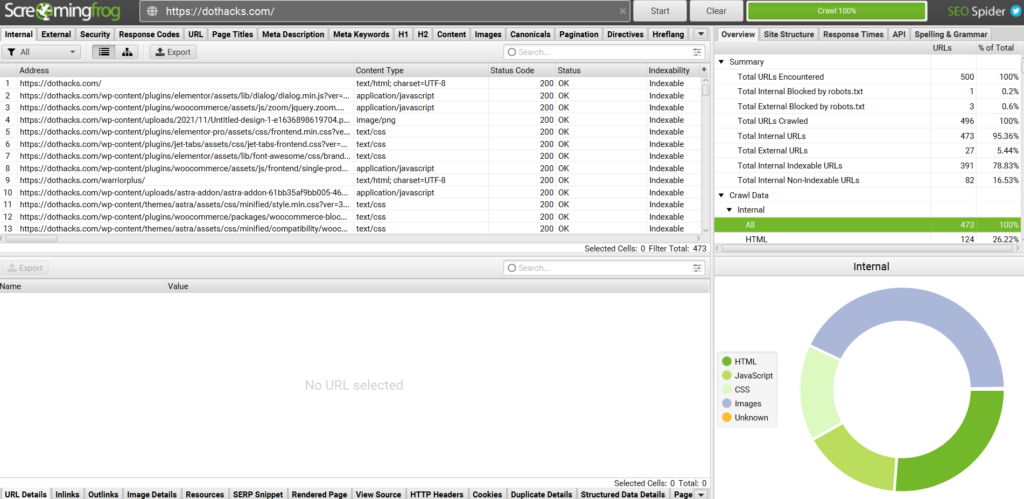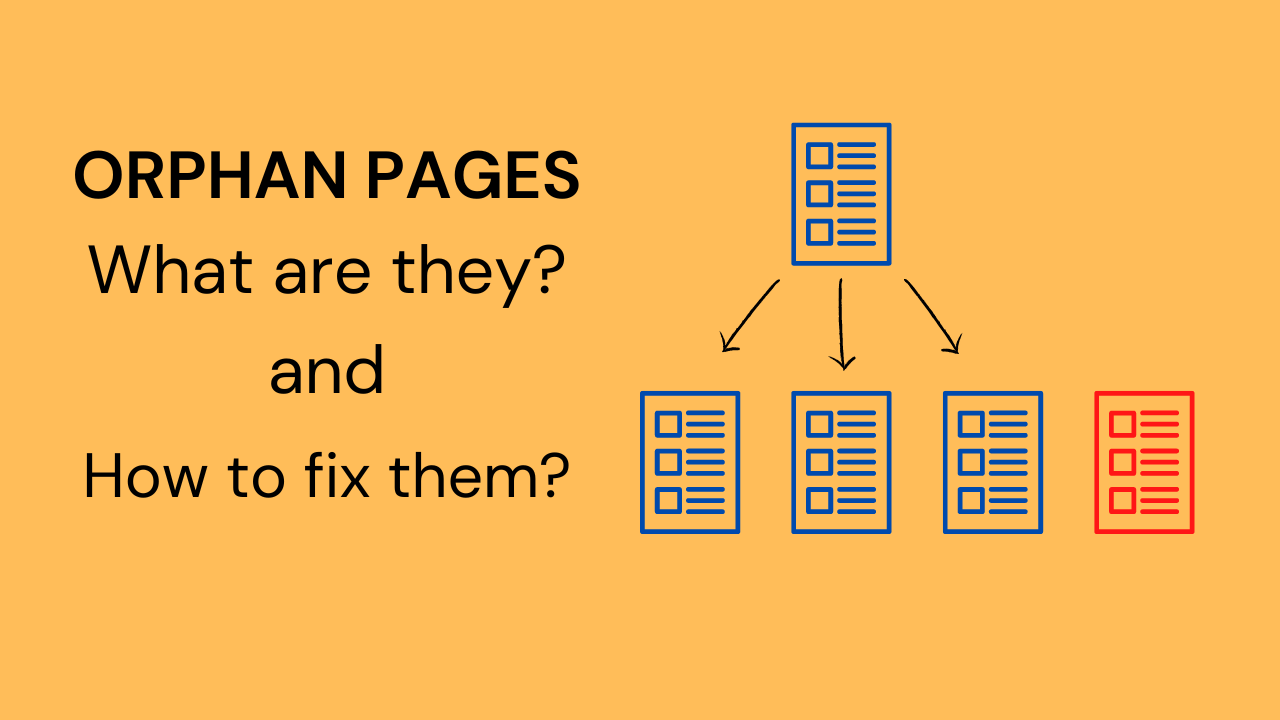Often overlooked, orphan pages are something that probably exist on every single website on the internet.
In fact, due to the lack of attention paid to these pages, they practically end up hurting the SEO rankings of your entire site.
But there’s good news – Orphan pages not only could be fixed but could also be optimized to improve the overall SEO of your entire website.
How?
What are Orphan Pages?
As the name suggests, orphan pages refer to the abandoned pages on your website. These pages do exist on your site, but none of the pages or posts link to these pages, making them very hard to find.
Unless you don’t know the exact URL of these pages, you won’t be able to access them, and neither wouldn’t most of the search engines.
If you aren’t linking to these pages, you are missing out on these pages being indexed by search engines.
This hurts your search engine rankings.
How do Orphan pages impact your SEO rankings?
- The search engine crawler follows a link from any other page on the internet.
- The search engine crawler finds the URL listed in your XML sitemap.
Why do Orphan Pages exist in the first place?
As companies and brands start growing, their marketing approach keeps evolving and the brand values keep on changing. During this entire process, many pages, posts, and links are created on a site that are practically abandoned by the company in the course of time.
Maybe like an old blog category or a product page that was never updated, almost every website has orphan pages. And even though these categories might be deleted, they still exist on the internet somewhere under different URLs.
As they exist without any links from the website, an orphan page is created. Orphan pages might seem relatively similar to zombie pages, but in reality, they are very different. Even though both these types of pages have no importance for the company, it makes a lot of sense to fix both.
How to identify orphan pages?
Since orphan pages:
- Aren’t indexed most of the times
- Don’t perform well general
- Hurt the user experience
- Hurt your macro/micro conversions
- Hurt your SEO rankings,
Identifying and fixing orphan pages is important for the overall authority of your site. You can identify the orphan pages on your website in the following few steps:
- Identifying all the crawlable pages on your site
- Analyzing the problems found
- Resolving the pages found
1. Identifying the crawlable pages on your site
For this purpose, you’d need a page crawl tool. We used ScreamingFrog in our case to crawl our site data.

You can also use your sitemap file for this purpose. Placed at the root of your domain, your sitemap exists to help search engine bots understand the content of your site and keep up to date with it. Being dynamic in nature, your sitemap gets updated every time you post new content on your site.
Crawl only the pages that are indexed by search engines, like your posts and other landing pages. It’s advisable to start from the homepage and use the canonical URL (including proper http or https).
2. Analyzing the problems
Now as you have your list of links in front of you, you would have to identify your orphan pages in a particular way.
As we discussed in our guide to on-page SEO, the use of HTTPS on your website is almost mandatory now. Every public page on your site should in fact use HTTPS.
If all the variations of the URL you are typing point to the exact URL, then you’re fine.
Let’s suppose you are typing ‘https://dothacks.com’, it should automatically redirect to ‘https://dothacks.com’, and so should be the case when you type ‘https://dothacks.com’.

If both the URL prefixes point to different pages, it could be a problem with the entire site. You should check for these issues by comparing other links and pages on your site as well.
When checking your pages, assess different traffic sources, page visits, entry, and exit behaviors as well. Manual reviews help a lot as well. If a page serves absolutely no purpose on your site, it makes a lot of sense to get rid of it altogether.
3. Resolving the orphan pages
Now as it’s clear to you what are the orphan pages on your site, you can determine what to do with them.
You can choose one of the following options:
- If the page is important to your site/business, you can link to it directly from some of the internal pages that you have.
- If it’s no longer needed or relevant, you can archive it from your dashboard.
- Let our SEO experts do it for you.
FAQs
Orphan pages negatively impact the SEO of your site. The reason for this is quite obvious – If any of the pages on your site aren’t linked by anybody (even yourself), search engines have a good enough reason to believe this page doesn’t have any importance. Since your overall rankings are affected by the fact that only one page is underperforming on your site gives us a good enough reason to either fix these pages or get rid of them altogether.
For search engines to find new pages from your website, one of the two ways is used – Either the crawler follows a link from any other page or it finds the URL listed in your XML sitemap.
Identifying and fixing orphan pages is important for the overall authority of your site. You can identify the orphan pages on your website by – Identifying all the crawlable pages on your site, analyzing the errors, and resolving the orphan pages manually.
Final Words
Before you delete any orphan pages, ask yourself if the page is important for you. Try to fix it before you delete it.
Try to verify other factors like if the page is ranking for any keywords, if you should redirect the page, or if you should just get rid of it.
Keep monitoring your site frequently, since every part of your site could have an impact on SEO, including orphan pages.
Finding and optimizing the orphan pages improves your visibility online and improves your overall rankings of the site, making it easier for people to discover you.

